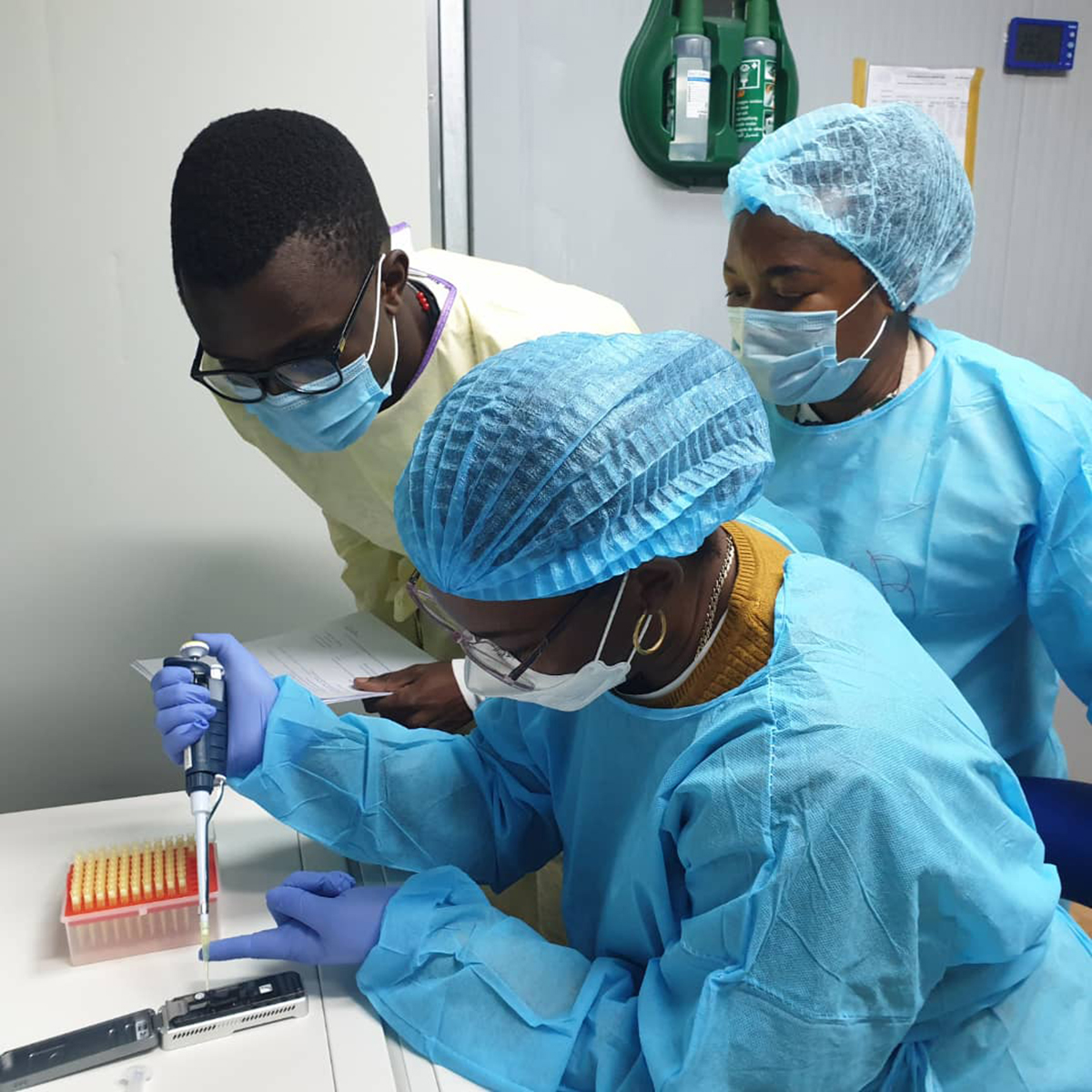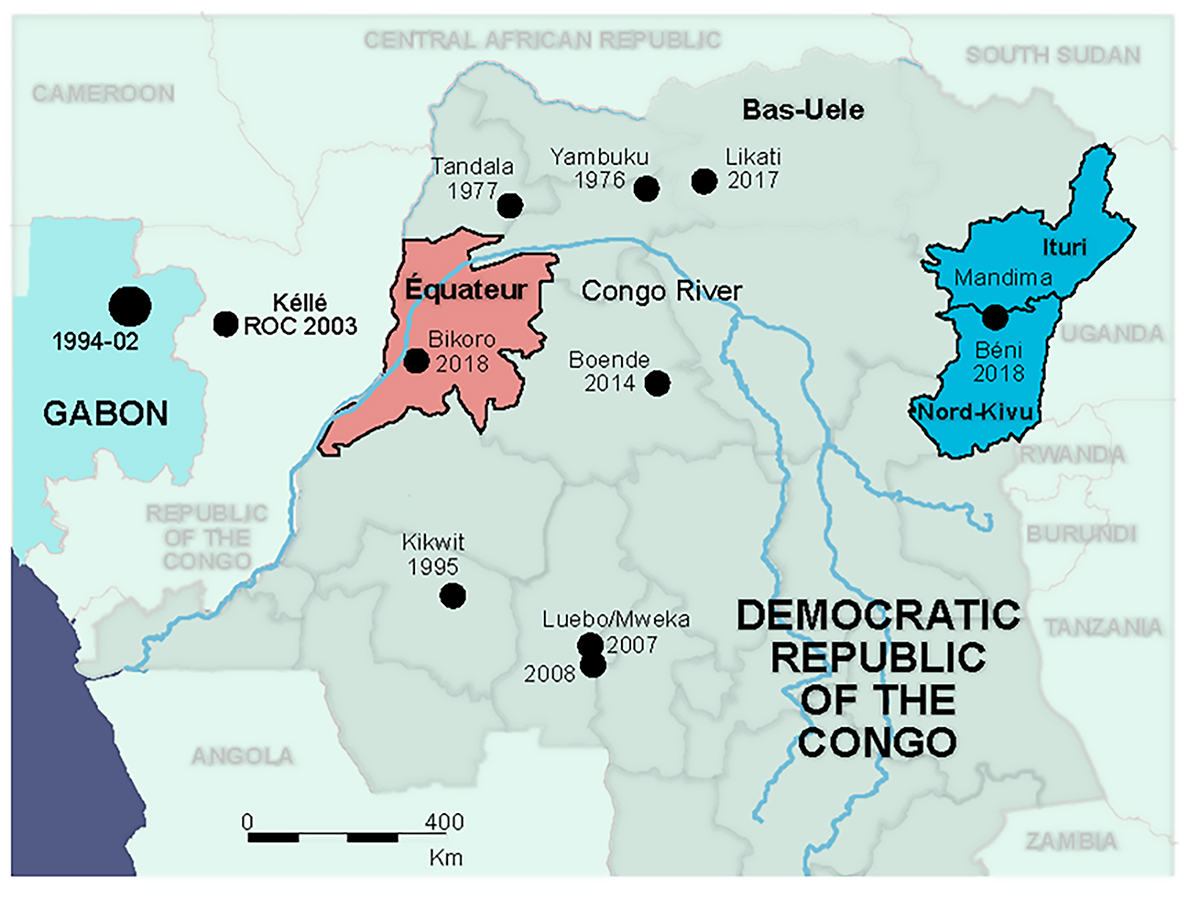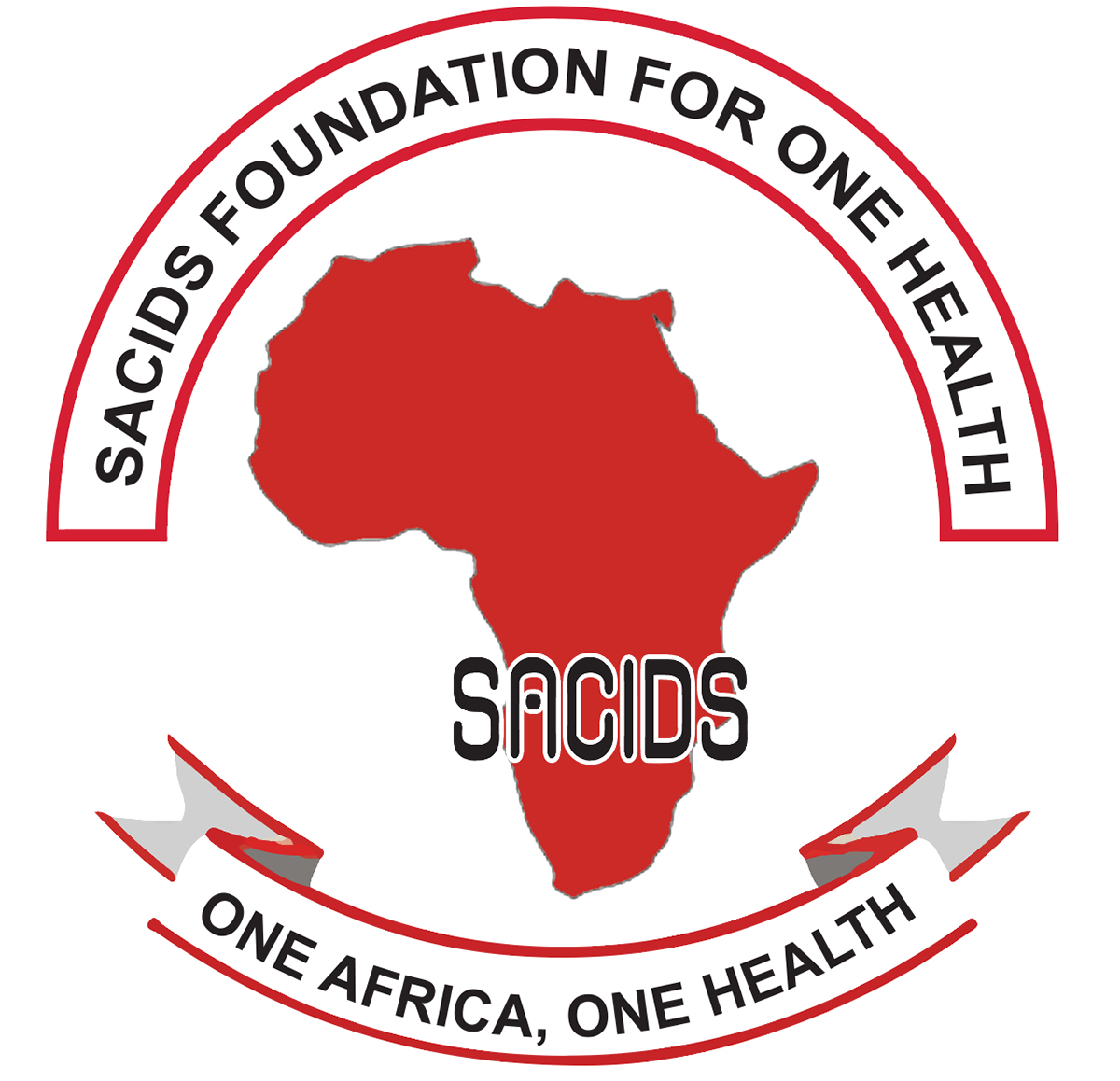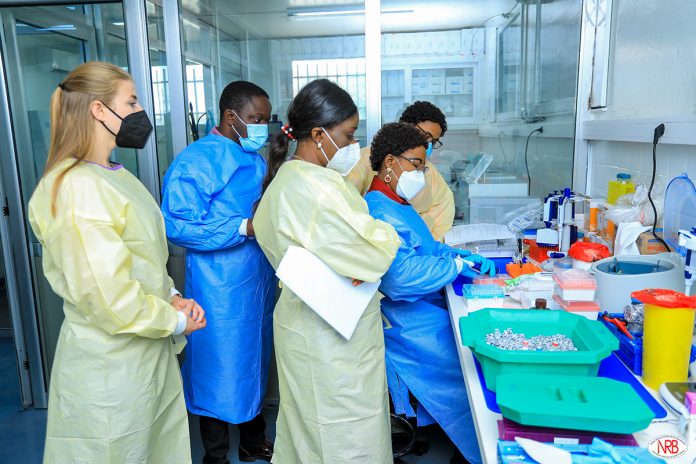Dr Placide Mbala-Kingebeni and Prof Jean-Jacques Muyembe Tamfum, discuss the contribution of pathogen sequencing in the management of infectious disease epidemics in the Democratic Republic of Congo
Since 2018, the Democratic Republic of Congo (DRC) has faced several epidemics and health emergencies, including four successive epidemics of the Ebola virus disease (EVD), at the same time that the country also faces the COVID-19 pandemic. With the support from various partners (such as the U.S. Army Research Institute of Infectious Disease, University of Nebraska Medical Center, Institut de la Recherche pour Développement, Institut Pasteur de Dakar, Gates Foundation, World Health Organization, University of California, Los Angeles, Africa Centres for Disease Control and Prevention, SACIDS Foundation for One Health, and others), a pathogen sequencing laboratory has been set up at the Institut National de la Recherche Biomédicale/National Institute for Biomedical Research (INRB), the national public health laboratory, thus enabling the rapid diagnosis and characterisation of the pathogens responsible for these epidemics.
This is to deploy diagnostic tools and other appropriate countermeasures such as vaccines and treatment.
The COVID-19 pandemic
Since the detection of the first case of COVID-19 on March 10, 2020, in the DRC, the cumulative number of cases as of September 4, 2021, is 55,992, including 55,991 confirmed cases and one probable case with a total of 1,061 deaths, a lethality rate of 1.9%.

In April 2021, the INRB Pathogen Sequencing Laboratory was assigned by the WHO Afro and Africa CDC to be the sub-regional reference laboratory for severe acute respiratory syndrome coronavirus 2 (SARS-CoV2), in terms of diagnosis and capacity building, as well as for EVD and other viral epidemic diseases.
Approximately 1,711 samples positive for SARS-CoV2 have been sequenced since the start of this pandemic in the country, including 101 samples from the Central African Republic (CAR), 90 samples from Cameroon, 20 samples from Chad, 100 samples from the Republic of Congo, and 1,400 samples from the DRC.
A total of 999 genomes with a coverage of over 85% have been generated and published on the public platform GISAID to contribute to the global response to the COVID-19 pandemic. The DRC has experienced three waves of COVID-19, each characterised by a significant increase in positive cases and hospitalisations. Each time, the most affected provinces remain Kinshasa, Kongo Central, North Kivu, South Kivu, Lualaba and Haut-Katanga, certainly because these provinces constitute entry points facilitating multiple exchanges with the other countries of the African continent and the rest of the world.
All the three waves are characterised by the presence of different variants resulting particularly from cases imported from European, African and Asian countries, followed by an intense local spread following the non-respect of barrier gestures in the population, inadequate public health measures at the borders (airport, ports, etc.) and low support capacity in health facilities.
During the first wave, the INRB detected a diversity of lines including lines A, B, B.1 and B.1.1. The second wave, which occurred between December 2020 and January 2021, was marked by the presence of the variants of concern Alpha and Beta. The latter was more predominant in the South-Eastern part of the DRC (Lualaba and Haut-Katanga provinces), due to the proximity to Zambia and other countries in Southern Africa where this variant was prevalent. The third wave occurred in May 2021, marked by a predominance of the Delta variant with a drastic increase in severe cases in hospital requiring respiratory assistance.

The INRB has acquired considerable experience in the management of previous outbreaks of EVD, including the development of an effective treatment against this disease. Two molecules based on the monoclonal antibodies “EBANGA” and “INMAZEB” have been approved by the U.S. Food and Drug Administration (FDA) as an effective treatment against EVD. This deadly disease, which once had no vaccine or medication, has become a curable disease.
Based on this experience, the DRC was able to quickly cope with these different waves of COVID-19, by deploying strategies similar to those used during epidemics of EVD, such as decentralisation of diagnosis for rapid screening, the isolation and care of infected people and the follow-up of people who have been in contact with infected people. However, the vaccination rate against COVID-19 in the country and Africa remains very low, which represents a significant challenge in halting the spread of this disease. This also implies continuous monitoring of the circulation of variants requiring intensification of sequencing activities in the continent and the sub-region, in particular.
Acknowledgement
The COVID-19 activities described in this article are funded by the Skoll Foundation, through Grant Agreement Award #20-45012.

About SACIDS for One Health
The SACIDS Foundation for One Health (SACIDS) is a ONE HEALTH Virtual Institute that links academic and research institutions in Southern and Eastern Africa, which deal with infectious diseases of humans and animals within the African Ecosystem, in an innovative South-South-North smart partnership with world-renowned centres of research and training. For details visit www.sacids.org
About Institut National de la Recherche Biomédicale / National Institute for Biomedical Research
The Institut National de la Recherche Biomédicale/National Institute for Biomedical Research (INRB) is the national medical research organisation of the DRC. It has been a collaborating center of the World Health Organization since 2018, serving as the national biomedical research laboratory for the Ministry of Health of the DRC. As the National Public Health Laboratory, it plays a key role in the virology and surveillance of emerging and epidemic diseases of the EVD and the COVID-19 pandemic. The INRB’s early response to COVID-19 has been supported by a grant from the Skoll Foundation as part of its funding to SACIDS to provide expert support to the national authorities in Eastern and Southern Africa in their preparation and response to the COVID-19 pandemic.
The INRB is a Founder Member, Institute of the SACIDS Foundation for One Health since the SACIDS inception in 2008. For details visit https://inrb.net/
About the Skoll Foundation
The Skoll Foundation, founded by Silicon Valley entrepreneur Jeff Skoll in 1999, invests in, connects and celebrates social entrepreneurs and the innovators who help them solve the world’s most pressing problems. For details visit www.skollfoundation.org
Please note: This is a commercial profile











